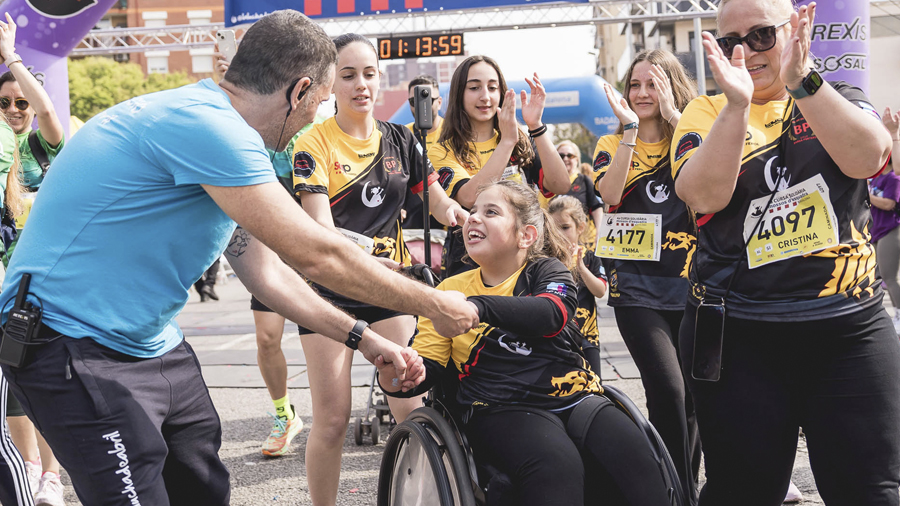Over €600,000 donated to the SPG52 gene therapy study thanks to crowdfunding campaign
The "La Lucha de Abril" association has raised an additional €74,000 through its crowdfunding campaign to research a gene therapy for Spastic Paraplegia Type 52 (SPG52), which is being conducted by a UAB research team. SPG52 is a rare disease affecting very few children around the world, one of whom is Abril Merino. The amoung donated, which was collected in a new edition of the Mossos d’Esquadra Badalona Race, organised by the association, raises the amount donated to over €600,000.

The crowdfunding campaign has already received more than €610,000 since it was launched in 2020. Of this amount, €170,647 has been raised by the four editions of the race that have been held so far. “We are very grateful for the support for our research and for the efforts of the organisers and participants,” says Miguel Chillón, ICREA researcher at the Institut de Neurociències (INc-UAB) and the Vall d'Hebron Research Institute (VHIR), who coordinates the research together with Assumpció Bosch, professor of Biochemistry and Molecular Biology at the UAB. The €74,192 raised in this year's edition, in which 4,500 people participated, represents the largest amount raised so far thanks to the race.
SPG52 is caused by a mutation in the AP4S1 gene and has no treatment. UAB researchers are working on a gene therapy that introduces a functional copy of this gene using viral vectors with the aim of slowing or reversing the progression of the disease. The disease affected only 55 children in the world, and three of them live in Spain: Abril Merino (Barcelona), Samuel Rodríguez (Granada) and Helia Vera (Murcia).
The UAB research team has already completed the first preclinical trials of the treatment, carried out in neurons derived from Abril Merino stem cells and in mice, with positive results that encourage further progress. The amount required to complete the third phase of the research has been estimated at €950,000. This amount will go towards the efficiency, biosafety and toxicity tests needed to be carried out before applying for a clinical trial. This phase is currently in its initial stages.
The UAB, with Sustainable Development Goals
Good health and well-being